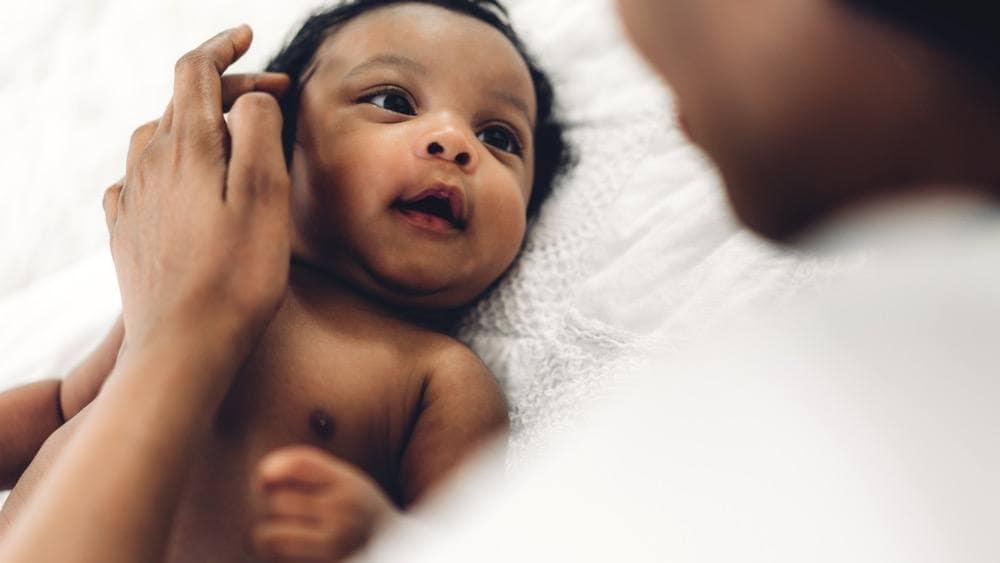Overview
Respiratory syncytial virus (RSV) causes infections of the lungs and respiratory tract. It's so common that most children have been infected with the virus by age 2. Respiratory syncytial (sin-SISH-ul) virus can also infect adults.
In adults and older, healthy children, respiratory syncytial virus (RSV) symptoms are mild and typically mimic the common cold. Self-care measures are usually all that's needed to relieve any discomfort.
RSV can cause severe infection in some people, including babies 12 months and younger (infants), especially premature infants, older adults, people with heart and lung disease, or anyone with a weak immune system (immunocompromised).
Symptoms
Signs and symptoms of respiratory syncytial virus infection most commonly appear about four to six days after exposure to the virus. In adults and older children, RSV usually causes mild cold-like signs and symptoms. These may include:
- Congested or runny nose
- Dry cough
- Low-grade fever
- Sore throat
- Sneezing
- Headache
In severe cases
RSV infection can spread to the lower respiratory tract, causing pneumonia or bronchiolitis — inflammation of the small airway passages entering the lungs. Signs and symptoms may include:
- Fever
- Severe cough
- Wheezing — a high-pitched noise that's usually heard on breathing out (exhaling)
- Rapid breathing or difficulty breathing — the person may prefer to sit up rather than lie down
- Bluish color of the skin due to lack of oxygen (cyanosis)
Infants are most severely affected by RSV. Signs and symptoms of severe RSV infection in infants include:
- Short, shallow and rapid breathing
- Struggling to breathe — chest muscles and skin pull inward with each breath
- Cough
- Poor feeding
- Unusual tiredness (lethargy)
- Irritability
Most children and adults recover in one to two weeks, although some might have repeated wheezing. Severe or life-threatening infection requiring a hospital stay may occur in premature infants or in anyone who has chronic heart or lung problems.
RSV and COVID-19
Because RSV and coronavirus disease 2019 (COVID-19) are both types of respiratory viruses, some symptoms of RSV and coronavirus disease 2019 (COVID-19) can be similar. In children, COVID-19 often results in mild symptoms such as fever, runny nose and cough. For adults with COVID-19, symptoms may be more severe and may include trouble breathing.
Having RSV may lower immunity and increase the risk of getting COVID-19 — for kids and adults. And these infections may occur together, which can worsen the severity of COVID-19 illness.
If you have symptoms of a respiratory illness, your doctor may recommend testing for COVID-19.
When to see a doctor
Seek immediate medical attention if your child — or anyone at risk of severe RSV infection — has difficulty breathing, a high fever, or a blue color to the skin, particularly on the lips and in the nail beds.
From Mayo Clinic to your inbox
Causes
Respiratory syncytial virus enters the body through the eyes, nose or mouth. It spreads easily through the air on infected respiratory droplets. You or your child can become infected if someone with RSV coughs or sneezes near you. The virus also passes to others through direct contact, such as shaking hands.
The virus can live for hours on hard objects such as countertops, crib rails and toys. Touch your mouth, nose or eyes after touching a contaminated object and you're likely to pick up the virus.
An infected person is most contagious during the first week or so after infection. But in infants and those with weakened immunity, the virus may continue to spread even after symptoms go away, for up to four weeks.
Risk factors
By age 2, most children will have been infected with respiratory syncytial virus, but they can get infected by RSV more than once. Children who attend child care centers or who have siblings who attend school are at a higher risk of exposure and reinfection. RSV season — when outbreaks tend to occur — is the fall to the end of spring.
People at increased risk of severe or sometimes life-threatening RSV infections include:
- Infants, especially premature infants or babies who are 6 months or younger
- Children who have heart disease that's present from birth (congenital heart disease) or chronic lung disease
- Children or adults with weakened immune systems from diseases such as cancer or treatment such as chemotherapy
- Children who have neuromuscular disorders, such as muscular dystrophy
- Adults with heart disease or lung disease
- Older adults, especially those age 65 and older
Complications
Complications of respiratory syncytial virus include:
- Hospitalization. A severe RSV infection may require a hospital stay so that doctors can monitor and treat breathing problems and give intravenous (IV) fluids.
- Pneumonia. RSV is the most common cause of inflammation of the lungs (pneumonia) or the lungs' airways (bronchiolitis) in infants. These complications can occur when the virus spreads to the lower respiratory tract. Lung inflammation can be quite serious in infants, young children, older adults, immunocompromised individuals, or people with chronic heart or lung disease.
- Middle ear infection. If germs enter the space behind the eardrum, you can get a middle ear infection (otitis media). This happens most frequently in babies and young children.
- Asthma. There may be a link between severe RSV in children and the chance of developing asthma later in life.
- Repeated infections. Once you've had RSV, you could get infected again. It's even possible for it to happen during the same RSV season. However, symptoms usually aren't as severe — typically it's in the form of a common cold. But they can be serious in older adults or in people with chronic heart or lung disease.
Prevention
Respiratory syncytial virus can infect anyone. But premature babies and young infants, as well as older adults, with heart or lung disease or a weakened immune system are at higher risk of severe infection.
Protection for babies and high-risk young children
Two main options exist to help prevent young infants from getting severe RSV. One is an antibody product given to the infant. The other is an RSV vaccine for pregnant people to help protect their baby from birth through 6 months of age. Both are approved by the U.S. Food and Drug Administration (FDA). You and your healthcare professional can discuss which option is best to protect your child.
Antibody product called nirsevimab (Beyfortus). This antibody product is a single-dose shot given in the month before or during RSV season. It's for babies younger than 8 months born during or entering their first RSV season. Nirsevimab also can be given to children 8 months through 19 months old who are at higher risk of severe RSV disease through their second RSV season. In the U.S., the RSV season typically is November through March, but it varies in Florida, Alaska, Hawaii, Puerto Rico, Guam and other U.S. Pacific island territories.
In rare situations, when nirsevimab is not available or a child is not eligible for it, another antibody product called palivizumab may be given. But palivizumab requires monthly shots given during the RSV season, while nirsevimab is only one shot. Palivizumab is not recommended for healthy children or adults.
- Vaccine for pregnant people. The FDA approved an RSV vaccine called Abrysvo for pregnant people to prevent RSV in infants from birth through 6 months of age. A single-dose shot of Abrysvo can be given sometime from 32 weeks through 36 weeks of pregnancy during September through January in the U.S.
Vaccine for older adults
Older adults have weaker immune systems, especially those with ongoing conditions, such as heart or lung disease. To help prevent RSV infection, the FDA approved RSV vaccines for adults age 60 and older.
The CDC recommends that adults age 60 and older talk with their healthcare professional about getting an RSV vaccine, especially if they're at higher risk of getting severe RSV. Two vaccines are available for this age group: Abrysvo and Arexvy. The CDC does not recommend one over the other. Each is a single-dose shot.
Talk with your healthcare team about the benefits and risks of RSV vaccines for your situation.
Lifestyle habits
These lifestyle habits can help prevent the spread of this infection:
- Wash your hands often. Teach your children the importance of hand-washing.
- Avoid exposure. Cover your mouth and nose when you cough or sneeze. Limit your baby's contact with people who have fevers or colds.
- Keep things clean. Make sure kitchen and bathroom countertops, doorknobs, and handles are clean. Put used tissues in the trash right away.
- Don't share drinking glasses with others. Use your own glass or disposable cups when you or someone else is sick. Label each person's cup.
- Don't smoke. Babies who are exposed to tobacco smoke have a higher risk of getting RSV and potentially more-severe symptoms. If you do smoke, never do so inside the house or car.
- Wash toys regularly. Do this especially when your child or a playmate is sick.



